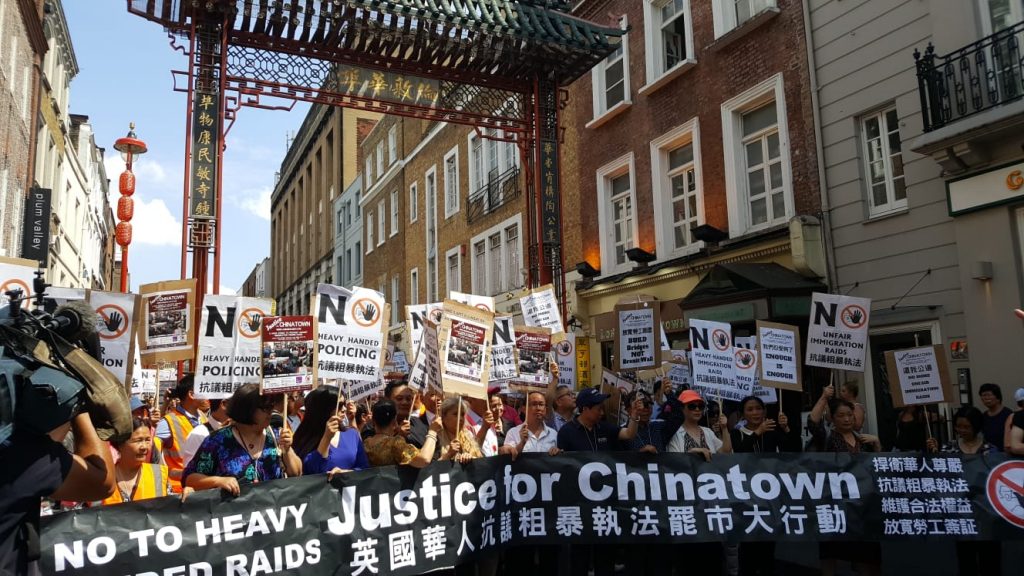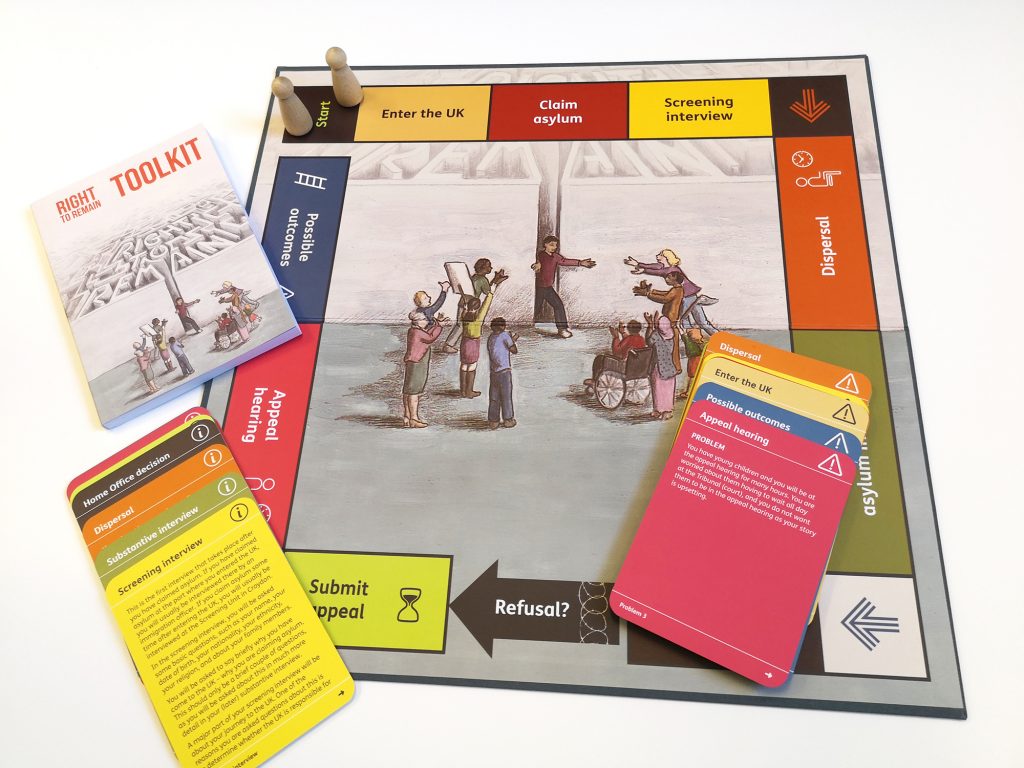From the Windrush scandal to the ‘hostile environment’, to the hunger strikes in Yarl’s Wood and the Stansted 15 conviction – this year has witnessed new levels of oppression and resistance.
We started 2018 with the launch of our new Right to Remain Toolkit. Our Toolkit is a unique, plain language guide to the UK asylum and immigration system. (Check out what is new in this edition, and access it online here.)
In February and March, 120 people detained at Yarl’s Wood detention centre started a hunger strike. Strikers refused food, to work, and to use services inside the centres, with a list of demands against the detention system. There were actions in support of the strikers
What was to become known as the ‘Windrush scandal’ started to make national and then international headlines in April, as it emerged that thousands of British citizens who came to the UK from the Commonwealth as children following the Second World War were being caught up in the government’s ‘hostile environment’ immigration policies. Many were denied jobs, healthcare, and housing, and others were locked up in detention centres or deported to countries they didn’t know.
The Windrush scandal also brought the Home Office’s ‘hostile environment‘ immigration policies into the limelight. I
As was forewarned, in addition to the harm they caused to undocumented migrants, these policies also affected all migrants, and black and minority ethnic British citizens.
Grassroots and mainstream groups have fought back against the ‘hostile environment’. Rough sleepers who were illegally detained were given compensation after the law targeting them was ruled illegal; campaigners scored important victories against the collection of school children’s nationality by the Home Office; the end of the scheme that used NHS data to track migrants; and a legal challenge against the ‘right to rent’ measures have just been launched.
Liberty, the Migrant Rights Network, and Corporate Watch all released essential guides to the hostile environment and how to fight it.
The horrors of the child separation policies at the US border brought to light how the UK immigration treats children, including the deportation of people who lived in the UK since they were children; profiteering of the unaffordable fees families must pay to register children as British citizens

We continued to highlight community solidarity. We spoke about resistance to immigration detention, wrote about simple steps you can take to help yourself and others, and
The These Walls Must Fall campaign to end immigration detention went from strength to strength. Council motions calling for an end to detention were passed in several cities, including Liverpool, Cambridge, Islington, Brighton, and Bristol.
The government announced that Campsfield detention centre (near Oxford) will close by May 2019, following a 25 year campaign.
The Stansted 15 activists – almost two years after their arrest for stopping a deportation charter flight through peaceful direct action – were convicted under terror legislation. Less than 24 hours after the verdict there were large protests outside of Home Office HQ in

On Intentional Migrants Day, over 18 cities in Britain and Ireland showed their support for the Stansted 15 and migrants struggling against the UK’s hostile immigration system.
As the year ended, we launched our Asylum navigation board, made with Dr Victoria Canning (of Bristol University). The board is a way to understand each step of the asylum system, from application to decision. Participants can learn about what people going through the system and those supporting them can do to be in a better position.

We were also lucky to be able to hear from our management committee this year, as they shared their experience and wisdom with us on our blog
For the year ahead, keep in mind this simple but powerful thought that was shared with us by our treasurer Robert:
“Take courage and keep working, there are more of us than you think.”
















Discussion: